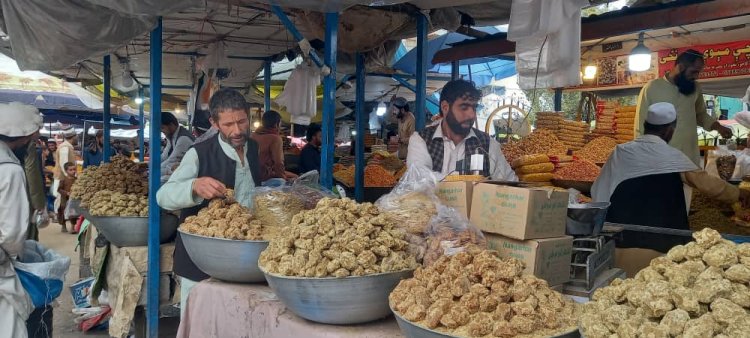Food Prices Soar in Afghanistan Amid Pakistan Border Tensions

Over the past week, tensions between the Taliban and Pakistan have caused food prices to surge in Kabul and other Afghan cities.
Khalid, a Kabul resident who came to the city to buy supplies, said that following the recent clashes between the two countries, the prices of flour, cooking oil, sugar, fuel, and gas have increased compared to last week.
He said, “Two weeks ago, I bought food items at lower prices, but now everything has gone up by 50 to 100 Afghanis (about $0.75 to $1.50), which has made life even harder for poor people.”
Shah Mahmood, a resident of Jalalabad, shared a similar concern. He explained that due to rising tensions between the Taliban and Pakistan and the closure of key trade routes such as Torkham, Spin Boldak, and Ghulam Khan, not only have food prices increased, but fuel and gas prices have also gone up.
He said, “A 16-kilogram can of oil that cost 1,400 Afghanis (around $21) now sells for 1,470 Afghanis (around $22). A bag of flour that used to cost 1,380 Afghanis ($20.70) now costs 1,460 Afghanis ($21.90). Sugar has gone up from 320 Afghanis ($4.80) to 360 Afghanis ($5.40). Prices for other items have also risen, and people can no longer afford them.”
Sayed Khaliq, a driver, expressed concern that no measures have been taken to control the rising prices. He warned that if the market remains unstable, poor families will face even greater difficulties.
He added, “Alongside food, the prices of fuel and gas have also increased. Two weeks ago, gas cost 45 Afghanis ($0.68) per kilogram, but now it’s 60 Afghanis ($0.90). Petrol has risen from 75 Afghanis ($1.13) to 88 Afghanis ($1.32), and diesel from 66 Afghanis ($0.99) to 75 Afghanis ($1.13). It’s becoming impossible to earn a living.”
Economic analyst Ehsanullah Haqmal said the sharp increase in prices is mainly due to the closure of key transit routes—Torkham, Spin Boldak, and Ghulam Khan—by Pakistan.
He added that the closure has disrupted not only the daily lives of ordinary people but also the work of traders. According to him, about 80% of Afghanistan’s imported goods, particularly food items, come through these Pakistani border crossings, and now trade has come to a standstill.
“With the closure of these routes,” he explained, “prices in local markets have immediately surged. If the crossings remain shut, Afghanistan could face shortages of essential goods. These routes must reopen, and trade should be separated from politics.”
The border crossings at Torkham, Spin Boldak, and Ghulam Khan have remained closed for more than a week following armed clashes between Taliban and Pakistani forces.
